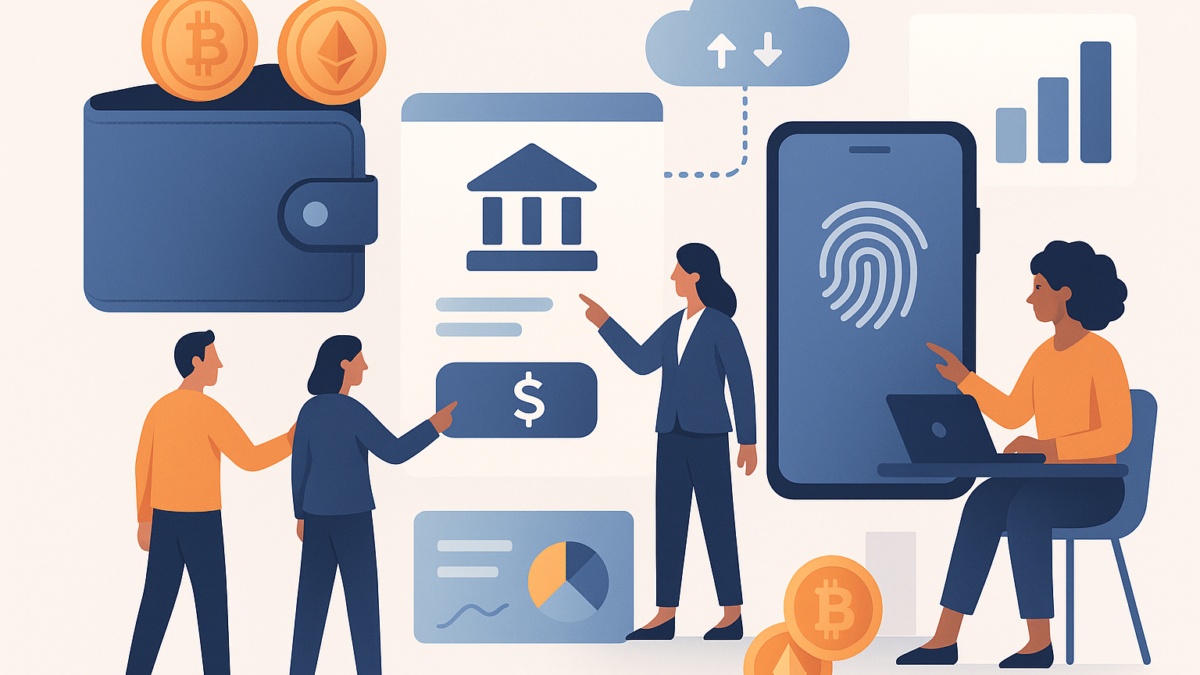Table of Contents
Introduction
In 2025, fintech is no longer a buzzword—it’s a core part of how the world handles money. From banking apps to cryptocurrency platforms, fintech is transforming financial services by making them faster, more secure, and more accessible.
Whether you’re a student, entrepreneur, or just curious about your options, this guide breaks down what fintech is, why it matters, and how you can start using it.
What is Fintech?
Fintech stands for financial technology. It refers to the use of technology to improve and automate financial services. This can include mobile banking, online investing, digital payments, personal finance apps, and more.
In simple terms, if you’ve ever:
- Sent money through Google Pay or PayPal
- Invested using Zerodha or Robinhood
- Applied for a loan online
— you’ve already interacted with fintech.
Quick Definition:
Fintech = Financial + Technology = Smarter, faster financial services using digital tools.
Why it is Important in 2025?
The fintech landscape has evolved rapidly. In 2025, it plays a critical role in:
- Making banking accessible to the unbanked
- Powering e-commerce payments
- Offering personalized investment tools
- Speeding up loan approvals using AI
Stat:
According to Statista, the global fintech market is expected to reach over $300 billion by the end of 2025.
Types of Financial Technology Services
Here are the major categories where fintech is used today:
Digital Payments
- Mobile wallets like Paytm, Apple Pay, or PhonePe
- P2P payments (e.g., Venmo, Google Pay)
Digital Banking
- Neobanks like Chime or Revolut offer banking services online, without physical branches.
Investment Tech
- Robo-advisors use AI to create automated investment strategies.
- Apps like Groww or INDmoney simplify stock investing.
Lending & Credit
- Online platforms offering Buy Now Pay Later (BNPL) or instant credit scoring.
- Peer-to-peer lending platforms like LendingClub.
Insurtech
- Online insurance comparison tools like PolicyBazaar.
- AI-based claims processing for faster approvals.
Blockchain & Crypto
- Cryptocurrency exchanges like Coinbase
- Decentralized Finance (DeFi) for transparent, peer-managed financial systems
Key Benefits
For Consumers:
- Easy access to services via mobile
- Lower fees and better transparency
- Faster transactions and real-time tracking
For Businesses:
- Secure, scalable infrastructure
- Data-driven customer insights
- Access to new customer segments
Top Financial Technology Trends in 2025
Fintech in 2025 is powered by innovation. Keep an eye on these trends:
- AI-Powered Financial Tools: From chatbots to credit scoring, AI helps make smarter financial decisions.
- Open Banking: Lets users safely share their banking data with third-party apps for more personalized services.
- Embedded Finance: Financial services are now embedded into apps you already use—think loans in a shopping app.
- Green Fintech: Tools that track and reduce your carbon footprint via sustainable investing.
- Regtech & Cybersecurity: Advanced tools for compliance, fraud detection, and data protection.
Real-World Examples
- Razorpay: Powers payments for millions of Indian businesses.
- Zerodha: India’s largest stockbroker offering zero-commission investing.
- Stripe: Used globally for processing e-commerce transactions.
- Niyo: A digital-first banking solution for international travel and spending.
How to Start
Here’s how beginners can explore fintech tools safely:
Step-by-Step Guide:
- Download a Personal Finance App: Try tools like Walnut or YNAB to track spending.
- Use a Mobile Wallet: Get started with Google Pay or PhonePe for easy transactions.
- Open an Online Investment Account: Platforms like Groww help you start with small investments.
- Compare Insurance Digitally: Use PolicyBazaar to find insurance that fits your needs.
- Stay Updated: Follow fintech blogs, news portals, and company updates to stay informed.
Conclusion
Financial Technology is changing the way we manage money—making it easier, smarter, and more inclusive. As the industry grows in 2025, now is the perfect time to explore its benefits, understand its tools, and take control of your financial journey.
Ready to Dive into Fintech?
Start by exploring our Fintech Resources or sign up for our newsletter to stay updated on the latest trends, tools, and tips to grow your financial knowledge.
You May Also Like: What Is Lead Generation? A Beginner’s Guide for 2025





